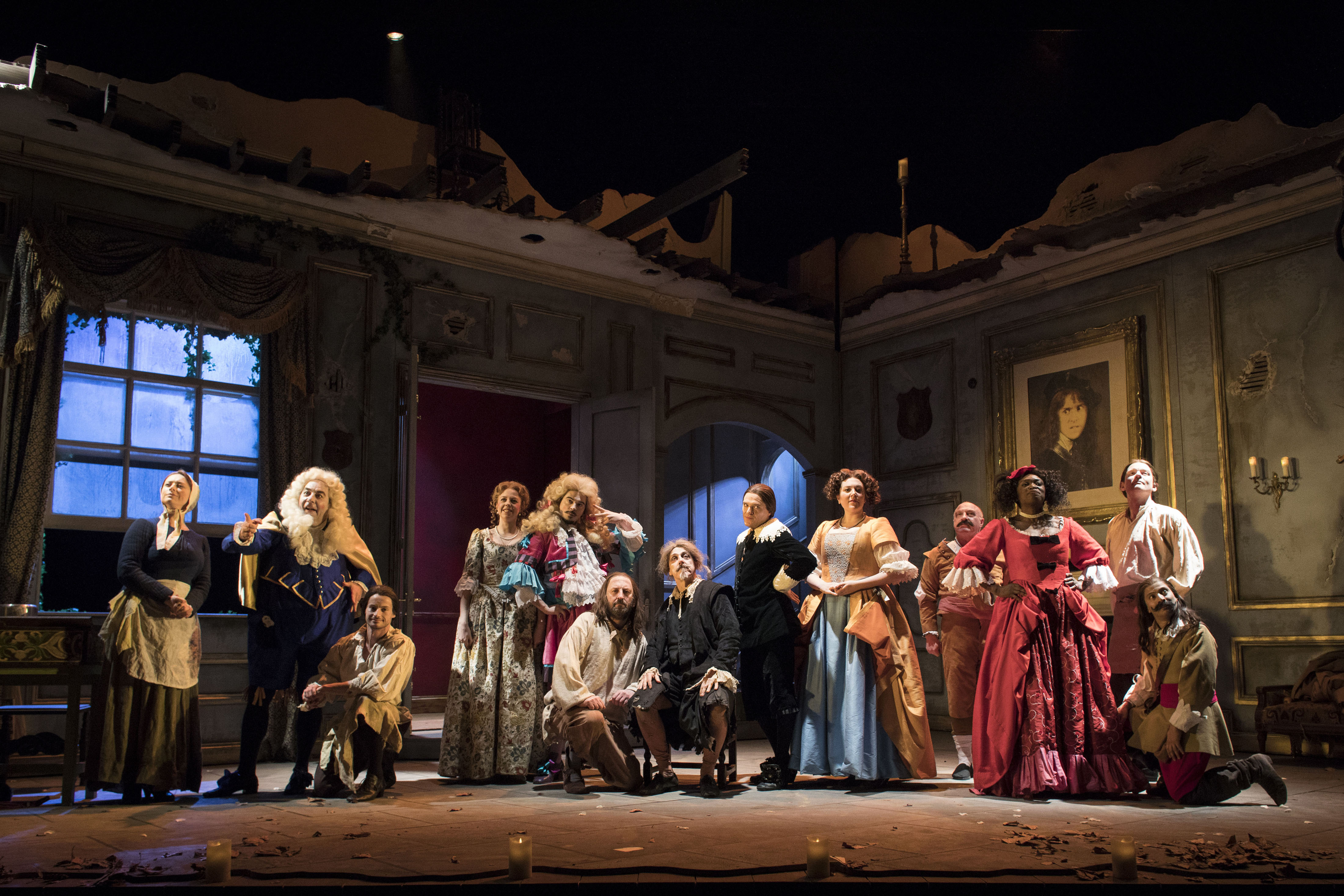A guest review from Fionnuala Barrett
I had high hopes heading into the Garrick; a comic classic by Molière with updated swipes at contemporary life, brought to life by a cast filled to bursting with comedic talent, some of it gratifyingly high-profile — a hit, bien sûr?
There is plenty of comedic material in the Harpagon household, whose wizened and unpleasant head is the cheese-parer of the title (Griff Rhys Jones). He has a plan to increase his coffers with materially advantageous matches for himself and each of his cheerfully spendthrift children, Elise (Katy Wix) and Cléante (Ryan Gage): a beautiful ingenue for himself and a couple of pensioners for them. Unbeknown to Harpagon père, fils et fille have contrived to fall in love with apparently unsuitable people — the former with the butler Valère (Mathew Horne), the latter with his dad’s own choice of bride, Marianne (Ellie White). Plans are laid, misunderstandings are had, all while cook-coachman-sommelier-harpsichordist Maître Jacques (Lee Mack) looks on and comments from the sidelines.
And, you’d hope, hilarity ensues. Certainly, I laughed intermittently: Ellie White wrings her relatively few lines for every bit of humour to be had from them, while Ryan Gage’s magnificently confident silliness was a standout, channelling Hugh Laurie’s Prince George from Blackadder III — right down to the oratorical roar he let out when confronting his penny-pinching father.

Yet despite great energy from the cast, I was never convinced that this production knew what it was aiming for. It lacked the requisite dizzying speed and precision for farce, as well as the fizz and spontaneity I’d hoped for from the production team’s own description of this as a very free adaptation of the source material. It’s not that it’s not there to be had: the difference in Lee Mack’s performance, between the scripted play and the couple of brief flashes where it felt like we’d gone off-script — such as when he apparently fluffed a line and whipped out a swift explanation directed into the auditorium that he knew all the lines, he was just translating them all from the French as he went along — was extraordinary.
Meanwhile contemporary satirical forays were heavy-handed at best: references to Harpagon’s poor track record as an employer who’s stolen his employees’ pension funds, or the miser telling Jacques that he would be terminating the man’s ‘contract de zéro heures‘. Such very soft satire in the heart of a comfortable West End theatre felt rather insidiously cosy (and not intentionally so). Which is a shame, because Rhys Jones, in his solo addresses to the audience, showed glimpses of a very different play to the one everyone else was in, far nastier and bleaker.

